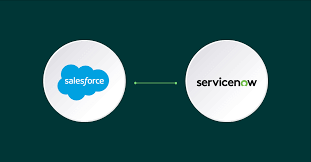Many small business owners use cloud services when they are convenient, often because using a Software-as-a-Service (SaaS) solution (like Gmail for business instead of a dedicated email client and in-house email server) is cheaper. SaaS can help small business employees get used to working in a cloud environment and accessing business data from anywhere. If your business hasn’t already taken steps to migrate its infrastructure to the cloud, now is the time to do so. Use these arguments and tips to make a use case for your business to switch to a Windows cloud platform and prepare for successful migration.

Benefits of moving to the cloud
Top benefits of moving to the cloud include the following:
· Upgrades: The cloud makes the latest technologies available for less, due to economies of scale. While your business may not be able to invest in the latest technology or hardware, you can often get these components as part of a cloud bundle.
· Reliability: Small businesses lack the large IT infrastructure of large businesses. When something goes wrong, fixing it can take some time. Because the cloud performs maintenance and upgrading, this won’t interrupt your business or your access to resources with downtime.
· Accessibility: A hallmark of the cloud is the ability to access information from anywhere, at any time. The cloud is ideal for employees who are traveling for business, working from home or attending meetings.
· Convenience: Because the cloud is so customizable, you can pick and choose the services you want. Unlike applications and onsite hardware, you can try out different solutions without investing much more than your time.
· Lower cost: The space, hardware and services you receive when you choose a cloud solution are often more cost-effective than they would be if purchased independently. Small businesses can access enterprise-level resources at a much lower cost than otherwise possible.
· Flexibility: While you can migrate everything to the cloud at one time, you don’t have to. You can save costs by migrating select services at a time, and realize the benefits of the latest Windows operating system without paying for the full cost up front.
Preparing to move to the cloud
While the cloud can be vital to small business success, it isn’t a decision to rush into lightly. Ask hard questions to select a cloud provider that meets your needs, including:
· What security the cloud provides? Is data encrypted? Does the vendor use a firewall, perform active 24/7 threat monitoring and control access to the data center?
· How much downtime/uptime does the cloud vendor provide? A business needs a cloud with a high level of uptime. Downtime equates to lack of resource access.
· What type of customer service does the cloud vendor provide? A small business without IT resources in hand needs responsive 24/7 customer service. A cloud vendor that does not provide consistent, high-quality service will be a bad match.
As you narrow down your needs, you can select a cloud plan that meets your business needs and fits your budget, and prepare for a cloud migration that won’t cause stress.







